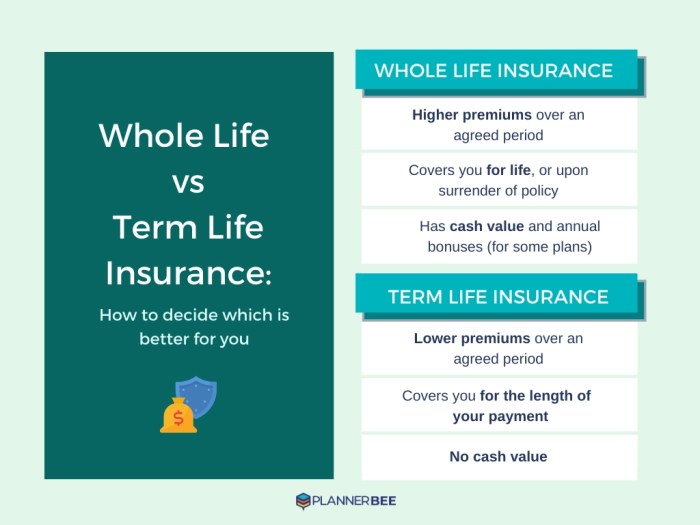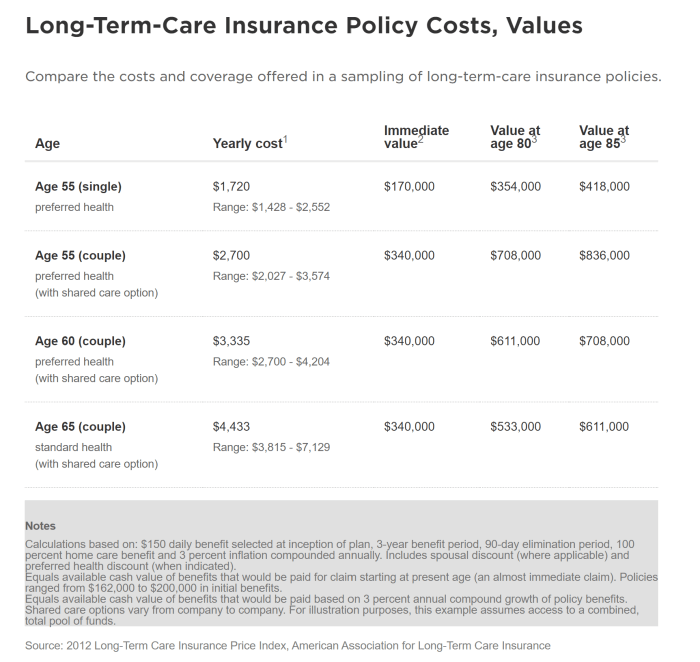Types of Lawyers Handling Car Insurance Claims
Lawyers that deal with car insurance claims – Navigating the complex world of car insurance claims often requires legal expertise. The process, riddled with bureaucratic hurdles and potentially biased insurance companies, can leave accident victims feeling overwhelmed and vulnerable. Understanding the different types of legal professionals involved is crucial for securing fair compensation. This overview clarifies the roles of various legal professionals and their specific areas of expertise in handling car insurance claims.
Personal Injury Lawyers
Personal injury lawyers specialize in representing individuals who have suffered physical or emotional harm due to someone else’s negligence. In car accident cases, this often involves pursuing claims against at-fault drivers or their insurance companies. These lawyers investigate the accident, gather evidence (police reports, medical records, witness statements), and negotiate with insurance adjusters to secure a settlement or pursue litigation if necessary.
Their expertise lies in understanding tort law, personal injury statutes, and the intricacies of insurance policies. A personal injury lawyer is most beneficial when significant injuries, substantial property damage, or complex liability issues are involved. For example, a case involving a serious spinal cord injury requiring extensive medical treatment and rehabilitation would strongly benefit from the representation of a skilled personal injury attorney.
They can handle the complexities of medical billing, future medical care projections, and lost wages, maximizing the victim’s compensation.
Insurance Claims Adjusters, Lawyers that deal with car insurance claims
While not lawyers, insurance claims adjusters play a significant role in the claims process. They are employed by insurance companies to investigate claims, assess damages, and determine the amount of compensation to be paid. Their primary goal is to minimize the insurance company’s payout. This often puts them in direct conflict with the accident victim, leading to negotiation battles over the value of the claim.
Adjusters are skilled negotiators and have extensive knowledge of insurance policies and industry practices. Understanding their tactics is crucial for accident victims. For example, an adjuster might undervalue a claim by downplaying the severity of injuries or disputing liability. While not legal professionals, their actions significantly influence the outcome of a claim, making it essential for accident victims to be informed and prepared to negotiate effectively, or seek legal counsel.
Other Legal Professionals
While personal injury lawyers are the most common type of legal professional handling car insurance claims, other specialists may be involved in complex cases. For instance, medical malpractice lawyers may be necessary if medical negligence contributed to the severity of injuries. Similarly, wrongful death lawyers handle cases where a car accident resulted in a fatality. The specific legal expertise needed depends on the unique circumstances of each accident.
Comparison of Legal Professionals
| Professional | Expertise | Typical Fees | Typical Caseload |
|---|---|---|---|
| Personal Injury Lawyer | Tort law, personal injury statutes, insurance law, negotiation, litigation | Contingency fees (percentage of settlement or judgment), hourly rates | Wide range, depending on firm size and specialization; from a few dozen to hundreds of cases. |
| Insurance Claims Adjuster | Insurance policies, claims investigation, damage assessment, negotiation | Salary (employed by insurance company) | High volume of relatively low-value claims. |
The Claims Process

Navigating the car insurance claims process can feel like traversing a minefield, especially after the trauma of an accident. The system, designed ostensibly for fairness, often operates in a way that favors the insurance companies, leaving accident victims vulnerable and potentially undercompensated. Understanding the process and the strategic points where legal intervention can be critical is paramount to protecting your rights and securing a just settlement.The inherent power imbalance between the individual and the large insurance corporations necessitates a clear understanding of the legal landscape.
This is not a game of chance; it’s a strategic battle where knowledge is your strongest weapon.
Stages of a Car Insurance Claim and Lawyer Involvement
The claims process unfolds in a series of steps, each presenting opportunities for the insurance company to minimize payouts. Early legal involvement can significantly alter the trajectory of your claim, ensuring your interests are properly represented from the outset. Delaying legal consultation can severely limit your options and weaken your negotiating position.
- Accident Reporting and Initial Investigation: Immediately after the accident, report it to the police and your insurance company. A lawyer can advise on the precise wording of your statement to the police and insurance adjuster, preventing any unintentional misrepresentation that could later harm your claim. This initial report forms the foundation of your case.
- Gathering Evidence: Collect as much evidence as possible: photographs of the damage to vehicles and the accident scene, witness statements, medical records, repair estimates. A lawyer can guide you on what evidence is crucial and how to obtain it legally and effectively. Failing to secure sufficient evidence early on can severely weaken your claim.
- Negotiation with the Insurance Company: The insurance company will likely make a settlement offer. This offer is rarely the full value of your claim. A lawyer can analyze the offer, identify any discrepancies, and negotiate a fairer settlement based on the evidence and the applicable laws. Insurance adjusters are trained negotiators; a lawyer levels the playing field.
- Medical Treatment and Documentation: Seek prompt medical attention for your injuries. Thorough medical documentation is critical for establishing the extent of your injuries and their connection to the accident. A lawyer can ensure all medical bills and records are properly documented and submitted to support your claim. Delayed or incomplete medical documentation can severely limit your compensation.
- Filing a Lawsuit: If negotiations fail to produce a satisfactory settlement, filing a lawsuit becomes necessary. A lawyer will handle all aspects of the litigation process, including discovery, depositions, and trial preparation. This stage requires specialized legal expertise to navigate complex legal procedures and build a compelling case.
Situations Requiring Early Legal Intervention
Several scenarios necessitate immediate legal intervention to maximize your chances of a favorable outcome. Delaying legal counsel in these situations can severely compromise your claim’s value.
Navigating the complexities of car insurance claims can be challenging, especially after an accident. That’s where specialized lawyers step in to help you understand your rights and pursue fair compensation. If you’ve been involved in a car accident, seeking help from a car accident insurance lawyer is a smart move. These legal professionals are experts in dealing with the insurance companies and ensuring you receive the settlement you deserve.
Remember, lawyers that deal with car insurance claims are your advocates in this process.
- Serious Injuries: Claims involving significant injuries, such as broken bones, head trauma, or spinal cord damage, often require extensive medical treatment and rehabilitation. A lawyer can ensure your claim accurately reflects the long-term costs associated with these injuries.
- Disputed Liability: When liability for the accident is unclear or contested by the other driver’s insurance company, early legal intervention is crucial to build a strong case and protect your interests. The insurance company’s initial assessment of fault is not necessarily final.
- Uninsured or Underinsured Motorist Claims: If the at-fault driver is uninsured or underinsured, your own uninsured/underinsured motorist coverage will come into play. A lawyer can help navigate the complexities of these claims and ensure you receive the compensation you deserve.
- High Property Damage: Accidents resulting in substantial vehicle damage often involve complex insurance negotiations. A lawyer can ensure all repair costs, diminished value of your vehicle, and other related expenses are properly accounted for.
Legal Strategies and Tactics
The pursuit of justice in car insurance claims often resembles a high-stakes poker game, where shrewd legal maneuvering and a deep understanding of the system are crucial for securing favorable outcomes. Lawyers employ a range of strategies and tactics, often adapting their approach based on the specifics of each case and the opposing insurer’s behavior. The ultimate goal is to maximize compensation for their clients, whether through negotiation or litigation.Lawyers leverage several key strategies to achieve this.
These strategies are not mutually exclusive; instead, they often work in concert, creating a multifaceted approach designed to pressure insurers into fair settlements or to build a robust case for trial. The effectiveness of each strategy hinges on meticulous preparation, a thorough understanding of relevant laws and precedents, and a skilled ability to present compelling arguments.
Negotiation Techniques
Successful negotiation in car insurance claims relies on a blend of assertive advocacy and strategic concessions. Lawyers often begin by presenting a strong initial demand based on a comprehensive assessment of damages, including medical expenses, lost wages, pain and suffering, and property damage. This initial demand sets the stage for subsequent negotiations. Experienced lawyers skillfully use persuasive communication to highlight the strengths of their client’s case, emphasizing the liability of the at-fault driver and the severity of the injuries or damages sustained.
They might employ “good cop/bad cop” tactics, with one lawyer presenting a more aggressive stance while another offers a more conciliatory approach. Furthermore, they might strategically reveal evidence in a controlled manner, keeping the insurer guessing and increasing the pressure for a settlement. A successful negotiation often involves a carefully calibrated exchange of information and concessions, ultimately leading to a settlement that surpasses the insurer’s initial offer but falls short of the maximum potential recovery at trial.
For instance, a lawyer might strategically disclose a particularly damning piece of evidence, like a witness statement or a strong medical report, just before a deadline, increasing the pressure to settle.
Building Strong Cases Based on Evidence and Legal Precedent
The foundation of any successful car insurance claim is a robust case built on irrefutable evidence. Lawyers meticulously gather evidence to support their clients’ claims, including police reports, medical records, witness statements, photographs of the accident scene, and repair bills. They analyze this evidence to identify inconsistencies in the insurer’s arguments and to highlight the strengths of their client’s case.
Legal precedent plays a vital role in shaping the lawyer’s strategy. By citing relevant case law and statutes, lawyers establish a framework for their arguments and demonstrate the legal basis for their client’s claim. For example, a lawyer might cite a previous case where a similar injury resulted in a significantly higher settlement, bolstering their client’s claim for damages.
This meticulous approach, combining strong evidence with relevant legal precedents, significantly increases the likelihood of a favorable outcome, whether through negotiation or litigation.
Approaches to Litigation in Car Insurance Cases
The decision to pursue litigation is a strategic one, carefully weighed against the potential benefits and drawbacks. Different approaches exist, each with its own advantages and disadvantages.
- Aggressive Litigation: This approach involves a forceful and assertive pursuit of the client’s rights through the court system. It’s often used when negotiations fail or when the insurer displays bad faith practices. This can involve extensive discovery, depositions, and potentially a trial. While potentially yielding higher settlements, it is also more time-consuming and expensive.
- Mediation and Arbitration: These alternative dispute resolution methods offer a less adversarial approach to resolving disputes. Mediation involves a neutral third party facilitating communication and negotiation between the parties. Arbitration involves a neutral third party making a binding decision. These methods can be more efficient and less costly than litigation, but the outcome is less predictable.
- Settlement Negotiation: This is often the preferred approach, aiming to reach a mutually agreeable settlement outside of court. It’s less expensive and time-consuming than litigation, but the final amount may be lower than what could be obtained through a successful trial. The success of this approach relies heavily on the lawyer’s negotiation skills and their ability to present a compelling case.
Illustrative Case Studies: Lawyers That Deal With Car Insurance Claims

The following case studies illustrate the complexities and nuances of car insurance claims, highlighting the crucial role of legal representation in achieving favorable outcomes. These examples, while anonymized to protect client confidentiality, demonstrate the diverse strategies employed and the often-unpredictable results within the current, often adversarial, insurance claims landscape. It’s important to note that each case is unique, and the success of a legal strategy depends heavily on the specific facts and circumstances.
Case Study 1: Low-Impact Collision, Significant Whiplash
A client was involved in a seemingly minor rear-end collision. The initial police report downplayed the incident, and the insurance company offered a minimal settlement for vehicle damage. However, our client suffered significant whiplash and ongoing neck pain, requiring extensive physical therapy and medication. We argued that the low-impact nature of the collision didn’t negate the severity of the resulting injuries, presenting expert medical testimony to demonstrate the causal link between the accident and the client’s condition. The insurance company initially resisted, but faced with compelling medical evidence and the potential for a protracted legal battle, they ultimately increased the settlement significantly, covering medical expenses, lost wages, and pain and suffering. This case highlights the importance of thorough medical documentation and expert witness testimony in proving the extent of injuries, even in seemingly minor accidents.
Case Study 2: Uninsured Motorist Claim
Our client was severely injured in an accident caused by an uninsured driver. The other driver admitted fault, but lacked insurance coverage. This case necessitated navigating the complexities of uninsured/underinsured motorist (UM/UIM) coverage under our client’s own policy. The insurance company initially attempted to minimize their liability, citing various technicalities and ambiguities in the policy. We aggressively pursued the claim, arguing that the policy’s UM/UIM coverage explicitly covered injuries sustained in accidents caused by uninsured drivers. We employed a strategy of meticulous documentation, including police reports, medical records, and witness statements, to build a strong case. The ensuing legal action forced the insurance company to honor the full extent of the UM/UIM coverage, securing a substantial settlement for our client’s medical bills, lost wages, and pain and suffering. This case demonstrates the necessity of understanding the intricacies of your own insurance policy and the value of assertive legal representation when dealing with uninsured motorists.
Case Study 3: Dispute Over Policy Coverage
This case involved a dispute over the scope of coverage provided by the client’s insurance policy. The client was involved in an accident while driving a vehicle that was not explicitly listed on their policy. The insurance company initially denied coverage, claiming the accident was not covered under the terms of the policy. Our strategy involved a careful review of the policy documents, looking for any clauses or ambiguities that might support our client’s claim. We argued that the circumstances surrounding the accident fell within the implied scope of coverage, despite the technical omission from the named vehicles. This required a detailed analysis of the policy language and relevant case law. Ultimately, the court ruled in our client’s favor, finding that the insurance company’s interpretation of the policy was overly restrictive and unreasonable. This victory underscored the critical need for thorough policy review and the potential for successful legal challenges against restrictive interpretations of insurance contracts.



